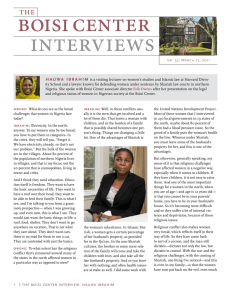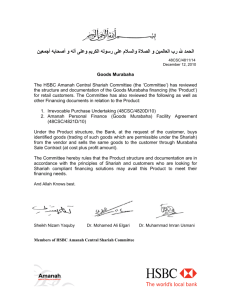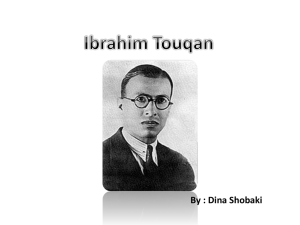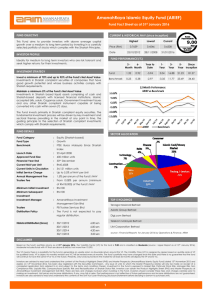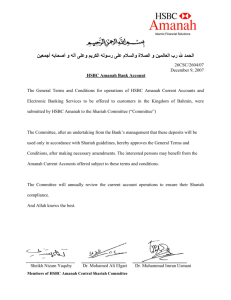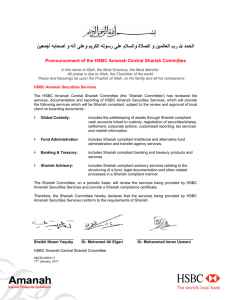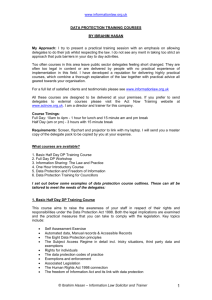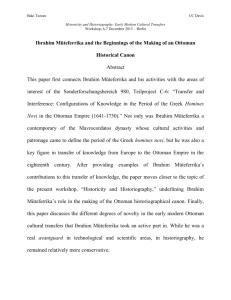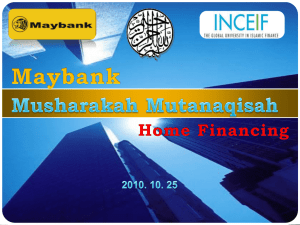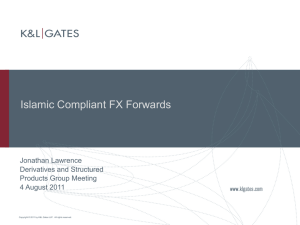to read more about Hauwa Ibrahim
advertisement
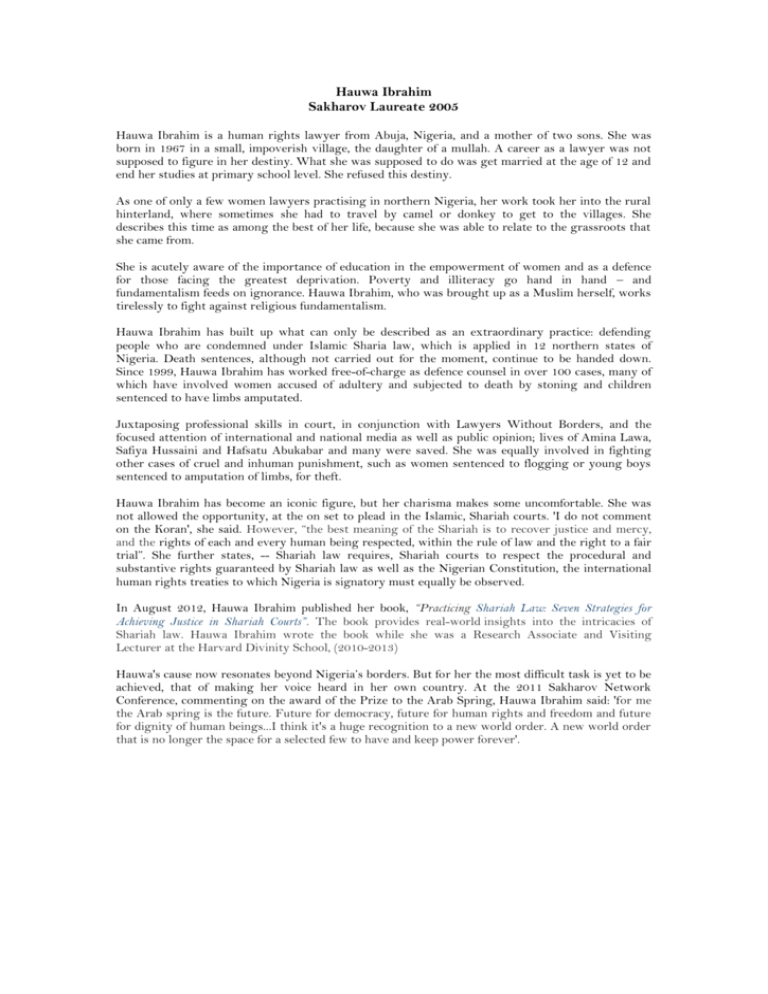
Hauwa Ibrahim Sakharov Laureate 2005 Hauwa Ibrahim is a human rights lawyer from Abuja, Nigeria, and a mother of two sons. She was born in 1967 in a small, impoverish village, the daughter of a mullah. A career as a lawyer was not supposed to figure in her destiny. What she was supposed to do was get married at the age of 12 and end her studies at primary school level. She refused this destiny. As one of only a few women lawyers practising in northern Nigeria, her work took her into the rural hinterland, where sometimes she had to travel by camel or donkey to get to the villages. She describes this time as among the best of her life, because she was able to relate to the grassroots that she came from. She is acutely aware of the importance of education in the empowerment of women and as a defence for those facing the greatest deprivation. Poverty and illiteracy go hand in hand – and fundamentalism feeds on ignorance. Hauwa Ibrahim, who was brought up as a Muslim herself, works tirelessly to fight against religious fundamentalism. Hauwa Ibrahim has built up what can only be described as an extraordinary practice: defending people who are condemned under Islamic Sharia law, which is applied in 12 northern states of Nigeria. Death sentences, although not carried out for the moment, continue to be handed down. Since 1999, Hauwa Ibrahim has worked free-of-charge as defence counsel in over 100 cases, many of which have involved women accused of adultery and subjected to death by stoning and children sentenced to have limbs amputated. Juxtaposing professional skills in court, in conjunction with Lawyers Without Borders, and the focused attention of international and national media as well as public opinion; lives of Amina Lawa, Safiya Hussaini and Hafsatu Abukabar and many were saved. She was equally involved in fighting other cases of cruel and inhuman punishment, such as women sentenced to flogging or young boys sentenced to amputation of limbs, for theft. Hauwa Ibrahim has become an iconic figure, but her charisma makes some uncomfortable. She was not allowed the opportunity, at the on set to plead in the Islamic, Shariah courts. 'I do not comment on the Koran', she said. However, “the best meaning of the Shariah is to recover justice and mercy, and the rights of each and every human being respected, within the rule of law and the right to a fair trial”. She further states, -- Shariah law requires, Shariah courts to respect the procedural and substantive rights guaranteed by Shariah law as well as the Nigerian Constitution, the international human rights treaties to which Nigeria is signatory must equally be observed. In August 2012, Hauwa Ibrahim published her book, “Practicing Shariah Law: Seven Strategies for Achieving Justice in Shariah Courts”. The book provides real-world insights into the intricacies of Shariah law. Hauwa Ibrahim wrote the book while she was a Research Associate and Visiting Lecturer at the Harvard Divinity School, (2010-2013) Hauwa's cause now resonates beyond Nigeria’s borders. But for her the most difficult task is yet to be achieved, that of making her voice heard in her own country. At the 2011 Sakharov Network Conference, commenting on the award of the Prize to the Arab Spring, Hauwa Ibrahim said: 'for me the Arab spring is the future. Future for democracy, future for human rights and freedom and future for dignity of human beings...I think it's a huge recognition to a new world order. A new world order that is no longer the space for a selected few to have and keep power forever'.
